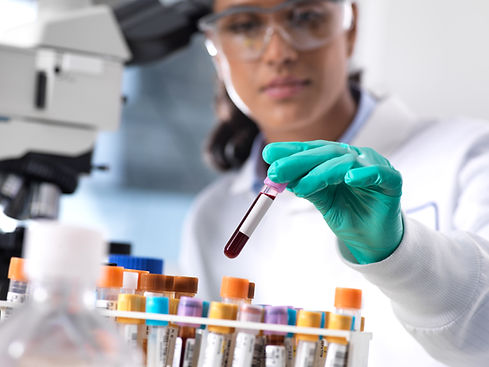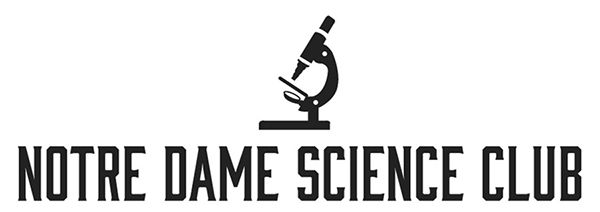Notre Dame High School


Notre Dame High School Department of
Science
Notre Dame’s science courses focus on developing students’ knowledge and skills through the study of theory and abstract problems, as well as further their laboratory skills through practical applications and working STEM models in labs and classroom activities. Students are given opportunities to experience hands-on applications of the concepts and theories they study in-class and online.

Science Courses
Our science curriculum is designed to help students prepare for university, college, or the workplace by building a solid conceptual and procedural foundation in science that enables them to apply their knowledge and skills in a variety of ways and successfully further their learning. An important component of every course in the science program is the development of students’ ability to relate science to technology, society and the environment. Students are encouraged to apply their understanding of science to real-world situations in these areas and to develop knowledge, skills, and attitudes that they will take with them beyond the science classroom.
The Notre Dame Science Department ensures student succeed in all three disciplines of science; biology, chemistry, and physics, by using 21st century learning practices and teaching tools. With the use of LCD projector/internet access technology, smart boards, and wireless network laptops, students can access animations, tutorials, self tests and videos relevant to concepts taught in class.
The use of computer-interface technology, particularly Logger Pro® software with biology, chemistry, physics, and human physiology Vernier® probeware, to collect data such as pH, temperature, motion, force, blood pressure, heart rate, breathing rate, etc. gives our students the necessary hands-on experience to guide them towards 21st century science-oriented careers.
Providing students with a modern day, hands-on approach to learning creates a dynamic and highly effective learning environment for all!
Women in STEM
Our science program is designed to help students become scientifically literate. One aspect of scientific literacy is the ability to recognize, interpret, and produce representations of scientific information in forms ranging from written and verbal reports, drawings and diagrams, and graphs and tables of values to equations, physical models, and computer simulations. As students’ scientific knowledge and skills develop through our program, they will become conversant with increasingly sophisticated forms and representations of scientific information. The senior science curriculum also builds on students’ experience with a variety of the sophisticated yet easy-to-use computer applications and simulations that are so prevalent in today’s world.
The curriculum integrates 21st century technologies and a special focus is given on the impact of Women in Science embedded throughout the curriculum. Various forms of technology are used to help students explore concepts and hone their skills preparing them for careers in STEM-related fields.

Women in Science Speaker Series
Through the Science Club’s Women in Science Speaker Series, female guest speakers who work in various STEM based roles provide talks scheduled every other week, introducing the girls to their experiences in real-world STEM jobs and maintaining a network of role models and mentors. To date, guests have included alumni, doctors, researchers, engineers, paramedics, business owners, and the Keynote Speaker for National Geographic.
The lineup of women represent a cross section of real-world STEM jobs introducing our girls to various STEM fields. Such areas include, but are not limited to medicine, research, engineering, business, registered massage therapy, dentistry, coding, scientific literature, aerospace engineering, and paramedicine. The list keeps growing!



SHSM : Health & Wellness
The Health & Wellness SHSM program includes opportunities for sector-specific experiential learning, essential skills development, workplace literacy and numeracy acquisition, and industry approved certifications as well as reach ahead opportunities with professional women in the Health & Wellness field.
According to Statistics Canada, over the past few decades, women have made significant advances in university participation, including program areas that had previously been more populated by men. One area, however, remains male dominated: science, technology, engineering and mathematical (STEM) degrees. "In 1991, the proportion of men and women aged 25 to 34 with a university degree was about the same (at 16%); by 2011, the proportion had increased to 37% among women and 27% among men. As a result, 59% of all university graduates aged 25 to 34 in 2011 were female."
By offering a SHSM in Health & Wellness at Notre Dame, we will help foster our students' interest in science-related fields, namely areas that include Biology, Kinesiology, Chemistry, Physics, Medicine, Nursing, Paramedicine etc..., and offer our students further opportunities to develop valuable sector-specific skills through industry specific certification programming, and co-operative education placements.
Our SHSM students build a foundation of sector-focused knowledge and skills before graduating and entering apprenticeship training, college, university, or an entry-level position in the health and wellness fields.
They complete:
-
Comprehensive Bundle of Grade 11 and 12 Courses, including a 2-credit co-op placement
-
Various Certification Courses (First Aid, CPR-C, Infection Control, Diversity in the Workplace, PPE Protocols, WHMIS, etc…)
-
A full Reach Ahead Program that establishes connections with sector specialists
-
And a sector-partnered experience project that enhances their coding and mathematical literacy


The Science Club at Notre Dame Catholic School strives to create a dynamic and highly effective learning environment that motivates students to learn and empowers them by giving them a leadership role in their community. Students gather weekly to discuss science-related advances and immerse themselves in differentiated learning techniques that allow them to develop a greater appreciation for science while building on their current skills.
Students are focused on three goals: Stewardship, Leadership, and Mentorship.
Students become intrigued and develop a genuine interest in science-oriented careers while learning to improve their leadership skills, and experience the rewards of giving back to their community.




